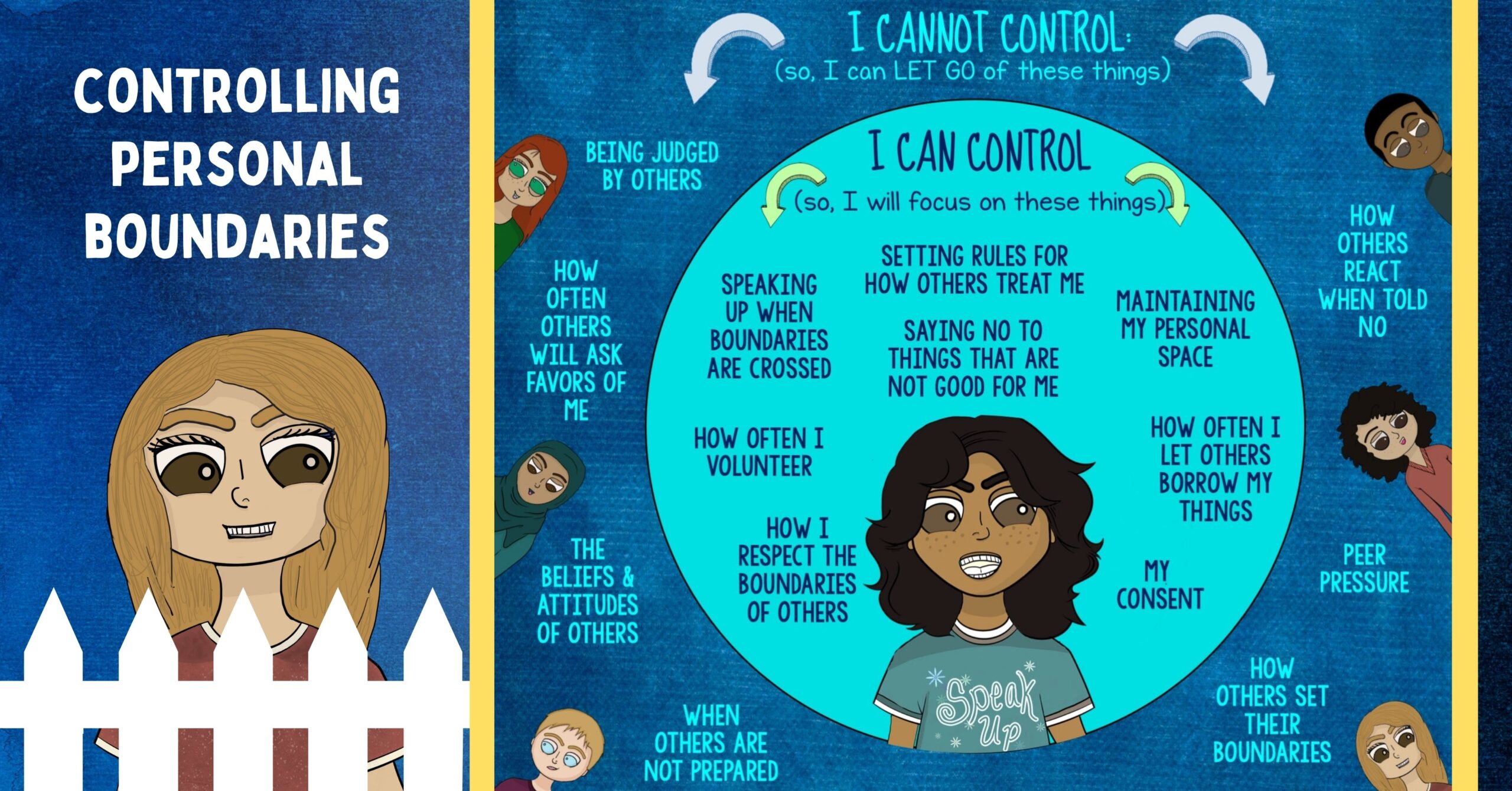As a school counselor, you’re used to noticing when others are hanging out on the edge of their set boundaries; their comfort zone. It’s just a part of who we are as empathetic individuals.
And sometimes we just want to help teach others how to set their own boundaries. Because don’t we all deserve to live authentically rather than pushing ourselves to please others?
Don’t get me wrong, though, I do believe there is a lot of value in stepping outside the comfort zone but not to the point where we don’t feel like ourselves at all anymore.
So here are a few tidbits of info you, your coworkers, and students need to hear when it comes to setting boundaries.
Wear Your Heart on your Sleeve
Sort of.
There’s nothing wrong with letting others know what makes you feel comfortable, uncomfortable, and safe.
We live in a society where we often feel it’s taboo to be too sensitive, or too open about our feelings. And if you’re an introvert, that can make living in an extroverted society extremely uncomfortable.
But the most important thing to remember is that it’s ok to be clear and upfront about what you are and are not ok with.
And this goes for fellow teachers and your students. Sometimes, the best thing we can do for our peers is to tell them that it’s ok, to be honest about what makes them tick, and that we respect it.
Setting Boundaries to Protect Your Mental and Physical Health
It’s not always easy to see, but setting boundaries based on what we’re comfortable with can actually protect our mental and physical health.
Anxiety, for example, puts a lot of undue stress on our bodies.
Setting boundaries for teachers may mean saying no to extra-curricular activities they aren’t comfortable participating in.
Furthermore, it’s important to set boundaries around time. In other words, if teachers and faculty don’t learn to say no, and set boundaries that protect their free-time, their physical health will most certainly be impacted.
Letting your peers know that saying no, is completely ok, and good for them. And as a bonus, it may teach them that it’s ok for them to do the same.
Set Boundaries that Go Against the Grain
One of the most difficult types of boundaries to set is the ones that others can’t easily relate to.
Here’s an example: While everyone else may feel like a coworker’s outing at the local watering hole is the bee’s knees, some may actually prefer to unwind at home with a good book to practice self-care.
But everyone is different and each person must be allowed to reenergize their soul in the way that works best for them. Even those these boundaries may seem confusing to some, they make perfect sense to the person who needs them.
Those around us need to know that it’s completely ok if they feel as though they are going against the grain, and it’s completely normal. We can teach them that it’s ok by vocalizing our own boundaries and by validating theirs.
Following Boundaries is Non-Negotiable
Practice saying no and not backing down.
Literally.
Teach your students and faculty that once they know what their most precious boundaries are, they are allowed to follow their own rules and not cross those boundaries.
And there are polite ways to say no, too. Which is usually half the struggle for those of us in education. We care…a lot. So we don’t like to disappoint anyone.
But the truth is, saying no doesn’t have to be harsh.
Have students and teachers practice starting their “no” phrases with, “I enjoy spending time with you, but…
- I’m just not comfortable doing that
- I won’t do that
- Instead….
Adding a hint of kindness to the statement makes all the difference. Grab my comprehensive workbook to start helping your students here.
Never Feel Guilty
I’m guessing this is the next feeling that comes up when you say no. And it’s completely normal.
But you, your fellow teachers, and students must learn that there is nothing to apologize for when making the decision that something just isn’t their/your jam.
It’s important to tell your peers that they can simply let go of the guilt because it’s not an attack on others to stick to one’s boundaries.
At the end of the day, if we’re more open about our boundaries, we can all find more tolerance, patience, and compassion toward one another.



